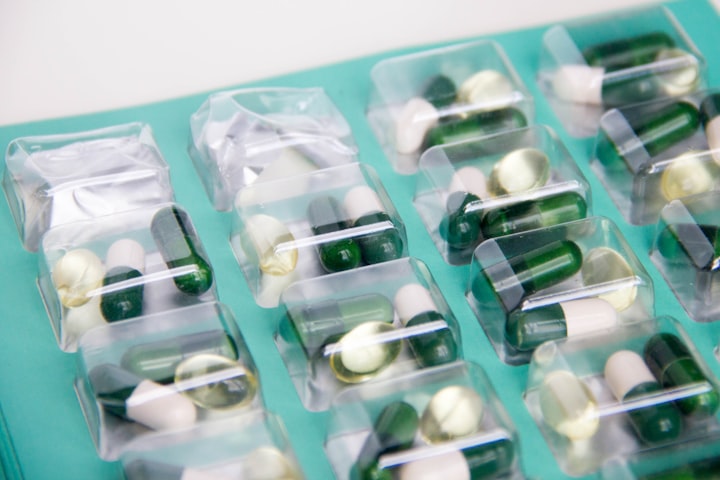Understanding How Cholesterol Accumulates In Our Body
Is it as easy as understanding how we accumulate money in our bank accounts?
The whole problem with health and healthcare these days is that things can get so complicated such that we have no idea how to make any head or tail out of it.
The thing is that a lot of common health issues can be simplified for the common person — but simplification takes time, and it doesn’t benefit the healthcare professional to explain all of that, because we are all aware of the fact that time is money.
For example, what does “high cholesterol” even mean?
It’s more convenient for the doctor to prescribe a statin to “reduce cholesterol”, isn’t it?
At least that’s what people with high cholesterol are told.
But of course…
There are ways to better understand what’s going on.
In fact, we can look at some useful analogies to understand what’s going on, which I believe the Youtube clip that I have attached above can help to explain.
For example, we have the idea of growing our wealth — and we know that our account balances can grow if and only if our income is greater than our output.
Because if I were to be getting $10 added to my bank account every day and deducting $5 from it for my expenses each day, I’d have a positive accumulation of $5 in my account every day.
Meaning that the net amount going into my account must be positive.
If my expenses rise to $7, my accumulation would be reduced to $3; and if my expenses rise to $10, my bank account would be at equilibrium, where what goes in equals what comes out.
In the same way…
Can we apply that logic to the cholesterol in our blood?
We can.
Our liver synthesises fresh cholesterol from our food — that’s what goes into our body.
Our intestines get rid of waste cholesterol as bile salts/acids via the faecal matter — that’s what goes out of our body.
Ideally, what goes in should be balanced with what goes out.
We can control what goes in based on the foods that we consume…
But what about what goes out?
We can, too, provided we’re taking frequent, regular dumps.
The thing is, are we?
If people are going regularly enough, then why on earth is constipation regarded as an epidemic in the United States? Not to mention that it also affects 17% of the population in Europe.
And if constipation is a problem, then that means that most people aren’t excreting their waste cholesterol as bile salts as efficiently as they ought to be…
And the output rate of cholesterol goes right down.
The problem is that these bile salts, when left in the intestines for a while (especially with the inefficient excretion of faecal matter because of constipation), can be re-absorbed back into the blood.
Such that the liver can then eventually process them back into cholesterol, and feed them into the cholesterol carriers, or the lipoproteins.
So then, we end up stuffing the lipoproteins with more cholesterol…
Middle school chemistry will tell us that as oil floats on water, it has a lower density than water.
Now, we do know that cholesterol is a fatty molecule. Oils are fats.
The majority of blood is water.
Meaning that if we were to mix blood and cholesterol together in a test tube, we’d see cholesterol floating on the surface of the blood.
Cholesterol would have a lower density than blood.
So what happens when we pack a lipoprotein fuller and fuller with cholesterol?
Would that not cause a DECREASE in the density of the lipoprotein molecule?
Therefore, would it not be known as a low density lipoprotein (LDL)?
The thing is that LDL is not “bad” cholesterol.
It is a carrier that is full of cholesterol, which is needed for the synthesis of new cells and the repair of older cells in our body.
LDL transports cholesterol out of the liver and to the cells.
When the cells take in their necessary cholesterol dosage, the lipoprotein loses some of its cholesterol cargo, and its density therefore… increases.
Then we’d be looking at a lipoprotein of higher density, which we can term as a high density lipoprotein (HDL).
When the synthesis of fresh cholesterol is balanced out by the excretion of waste cholesterol, we’d have a certain ratio between LDL and HDL.
However, when our excretion rates suffer…
We’d end up re-absorbing those bile salts, which get re-processed back into cholesterol, and the liver then stuffs more of this re-processed cholesterol into any available lipoprotein carriers.
Over time, would more HDL become LDL as they’re stuffed fuller and fuller?
Then when we go to the doctor for our annual medical checkups, all the doctor would need to do is to administer a blood test to determine how much HDL and LDL we have in our blood… and from there determine that we have the symptom of “high cholesterol” because we have too much LDL in our blood.
Of course, the common prescription for that is the statin, which works on blocking the mevalonate pathway, which governs the synthesis of fresh cholesterol from the liver.
But does the statin do any wonders in helping one address their constipation issue?
Apparently not, right? Doctors don’t have to consider constipation as problem in their cholesterol patients. They don’t necessarily even have to ask their patients!
The statin, however, is a great tool for recurring revenue.
All the doctor needs to do is to continue prescribing it automatically every time a repeat patient comes in for consultation.
Which is why Pfizer’s statin drug, also known as Lipitor, was considered to be a legendary cash cow, no?
Prescribing a partial solution that doesn’t completely address one’s problem can be a good profitable venture, isn’t it?
This article has been published elsewhere on Medium and on Substack.
Joel Yong, PhD, is a biochemical engineer/scientist, an educator and a writer. He has authored 5 ebooks (available on Amazon.com in Kindle format) and co-authored 6 journal articles in internationally peer-reviewed scientific journals. His main focus is on finding out the fundamentals of biochemical mechanisms in the body that the doctors don’t educate the lay people about, and will then proceed to deconstruct them for your understanding — as an educator should.
Do feel free to subscribe to my mailing list for more exclusive content!
About the Creator
Dr Joel Yong
Engineering biochemical support strategies for optimal health. Subscribe to my mailing list to not miss out on the latest content!







Comments
There are no comments for this story
Be the first to respond and start the conversation.